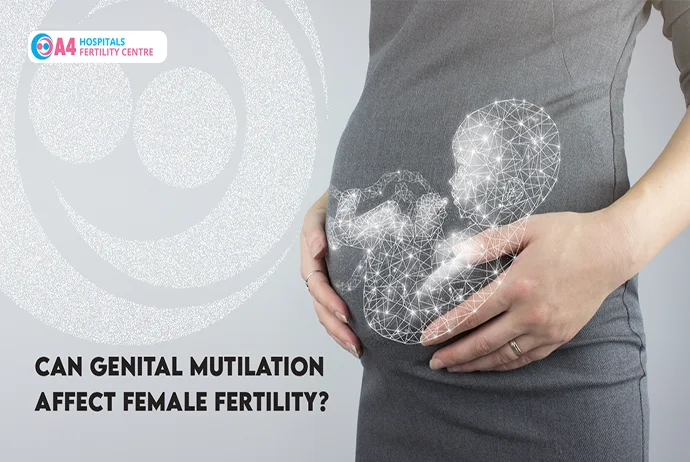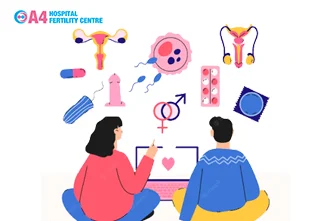
Dr. Aruna Ashok MBBS, MS OG, DNB OG
- Clinical Director

FGM, commonly referred to as female circumcision or cutting, is a hazardous practise in which the external female genitalia are partially or completely removed, or the female genital organs are somehow damaged, for non-medical purposes. FGM is against the law and can have a negative impact on a woman's physical, emotional, and reproductive health. The possible impacts of genital mutilation on female fertility will be covered in this article, along with the resources A4 Fertility Centre offers impacted women.


Infections : As one example of an infection brought on by FGM, pelvic inflammatory disease (PID) has the potential to scar tissue and obstruct fallopian tubes. Infertility can result from blocked tubes that stop the sperm from accessing the egg or the fertilised egg from implantation in the uterus.
Menstruation complications : Due to the constriction of the vaginal entrance, some types of FGM can lead to menstruation problems such the accumulation of menstrual blood (hematocolpos). This can worsen fertility issues by causing infection, inflammation, and damage to the reproductive organs.
Sexual dysfunction : FGM may impair a woman's capacity to have sexual activity and conceive naturally by causing pain, discomfort, and diminished sexual pleasure.
Obstetric difficulties : Pregnant and postpartum issues, such as protracted labour, postpartum haemorrhage, and the requirement for a caesarean section, are more likely to occur in women who have experienced FGM. Future infertility may become more likely as a result of these issues.
At A4 Fertility Centre, we are aware of the psychological and physical hardships experienced by women who have had genital mutilation. In order to assist these ladies on their path to motherhood, we provide a variety of services, including:
Medical evaluation : To determine the amount of the harm caused by FGM and its effect on fertility, our skilled fertility physicians will do a complete examination. In order to assess the reproductive organs, this may involve laparoscopy, blood tests, and imaging examinations.
Support from a psychologist: FGM may have a profound emotional impact, and handling these psychological concerns is essential for managing reproductive problems. To assist women in coping with their experiences, our caring mental health specialists offer counselling, support, and stress-reduction practises.
Treatments for infertility: Our fertility specialists may suggest ovulation induction, intrauterine insemination (IUI), or in vitro fertilisation (IVF) depending on the severity of the difficulties with infertility brought on by FGM. In rare instances, surgical intervention can be required to undo the harm done by FGM and increase fertility.
Multidisciplinary treatment: At the A4 reproductive Centre, we adhere to a wholistic theory of reproductive treatment. Our team of embryologists, nurses, mental health specialists, and fertility experts collaborates to offer complete assistance and care to women affected by FGM.
The fertility of a woman can be significantly impacted by genital mutilation, but there is assistance and hope available at A4 Fertility Centre. In order to help women who have had FGM on their journey to motherhood, our devoted team of professionals is committed to offering them individualised care and support. Make an appointment with one of our caring reproductive specialists at A4 reproductive Centre right away if you or someone you know is experiencing fertility problems as a result of FGM.